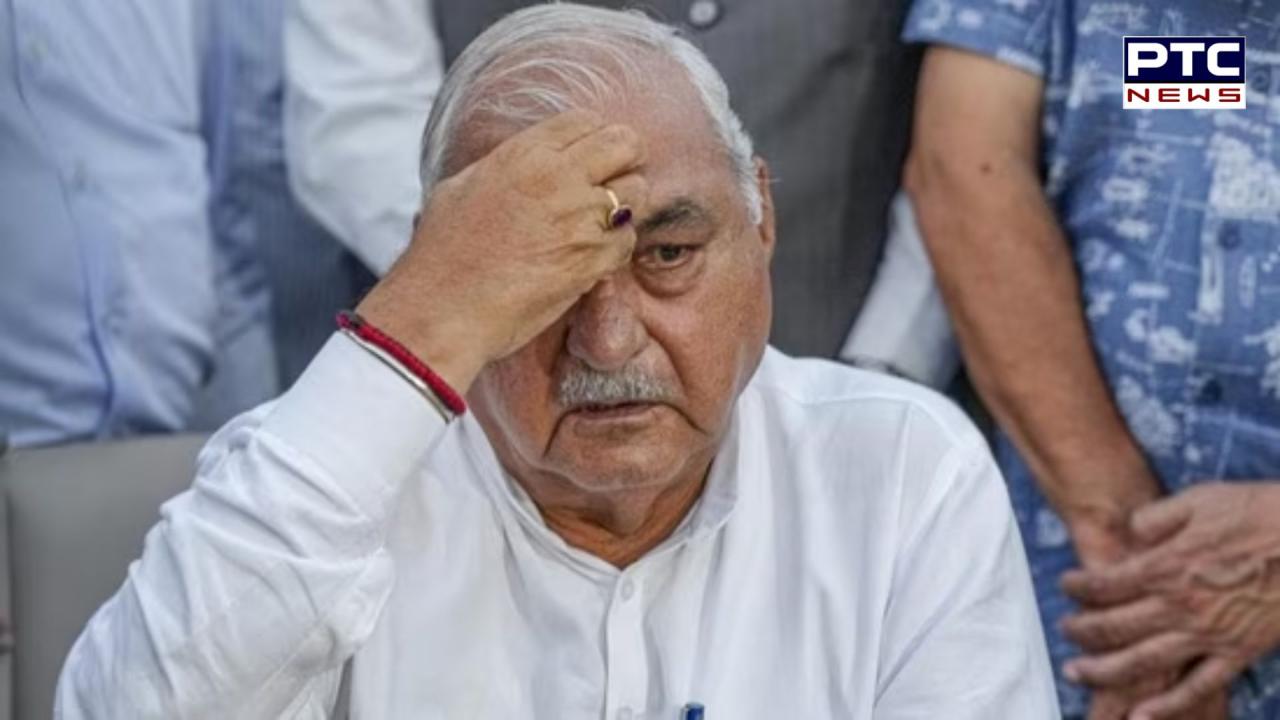Hooda-centric strategy backfires: Congress stumbles in Haryana elections
Congressmen engaged in the poll management contend that the party's seven-guaranteed campaign was impacted by infighting and overconfidence.

PTC News Desk: A week before the Haryana Assembly elections on October 5, a young Congress candidate from a constituency near Faridabad made a desperate call to a senior party leader, complaining that no prominent state-level leader had visited his area to campaign. This was just one sign of the mismanagement and overconfidence that plagued the Congress campaign.
Midway through the campaign, a senior Congress leader who joined former Haryana Chief Minister Bhupinder Singh Hooda at a few rallies noticed poor attendance. He suggested that the state leadership mobilise women in every village to enroll voters in the party’s "seven guarantees" initiative—a strategy that had worked successfully in Karnataka and Telangana. However, the suggestion was ignored.
The Congress had promised various benefits under its "seven guarantees," such as Rs 2,000 per month for women and the creation of 2 lakh government jobs. But Congress leaders involved in poll management argue that internal divisions and overconfidence undermined their ability to properly promote these promises.
“In Punjab, ahead of the 2022 elections, the Aam Aadmi Party effectively mobilized young supporters and women to reach out to every household, enrolling people for various benefits. We failed to implement this at the desired scale because we were too confident that we would win. On the ground, our campaign focused almost entirely on bringing Hooda back to power after ten years of BJP rule,” said one leader.
The shock defeat in Haryana has sparked intense introspection within the Congress, with leaders identifying three key reasons for the loss: over-reliance on the Hooda family and the Jat community, a poorly executed campaign, and internal party fractures.
“We made a huge mistake by taking things for granted. Everyone around me seemed to think victory was already assured. After losing Madhya Pradesh and Chhattisgarh last year, we should have been much more cautious,” admitted a senior leader involved in the Haryana polls.
After the national elections, in which the Congress won five of the state’s 10 Lok Sabha seats, it was clear that the race would be competitive. “We knew this wasn’t going to be an easy win, but we failed to put in the extra effort,” said another senior leader.
The Congress’ excessive focus on Hooda and the Jat community, which makes up about 25% of Haryana’s population, is also being blamed for the loss. “We emphasized issues affecting Jat wrestlers and Jat farmers, but ignored the broader concerns of non-Jat communities,” noted a third leader.
Internal divisions further weakened the Congress campaign. Key figures like Randeep Surjewala focused only on their local areas, while Kumari Selja was confined to Sirsa. Efforts to unify the party’s warring factions failed. “I couldn’t get Hooda, Surjewala, and Selja to campaign together. The three power centers in Haryana remained isolated from one another,” said the first leader.
The decision to deny Kumari Selja, a prominent Dalit leader, a ticket to contest also hurt the party. “With 17% of Haryana’s population being Dalit, sidelining Selja was a significant mistake. The BJP capitalized on this, with Haryana’s Chief Minister even inviting her to join the party,” said another leader.
Congress leader Pawan Khera acknowledged that the election results were unexpected but voiced concerns about irregularities. “Every election teaches lessons to both winners and losers. The Haryana result is shocking and unacceptable. We are receiving numerous complaints and will approach the Election Commission. This is a victory for the system and a defeat for democracy,” he said.
